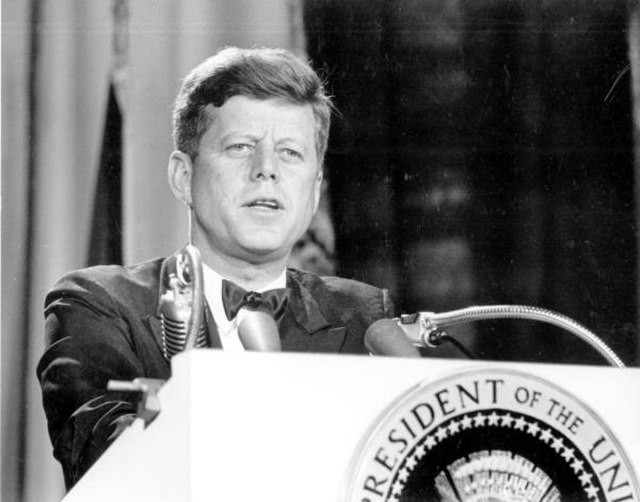Former President Donald Trump announced Monday that his administration will release over 80,000 pages of unredacted files related to the assassination of President John F. Kennedy, a move poised to spark renewed scrutiny of one of America's most enduring historical events.
Speaking to reporters during a visit to the John F. Kennedy Center for the Performing Arts in Washington, D.C., Trump declared: "We are, tomorrow, announcing and giving all of the Kennedy files. So, people have been waiting for decades for this." The former president added, "I don't believe we're going to redact anything. I said, 'just don't redact, you can't redact.'"
Trump confirmed the release would take place Tuesday afternoon and noted the files amount to approximately 80,000 pages. "It's a lot of stuff, and you'll make your own determination," he said, adding he had not read the documents himself but had "heard about them."
The release follows an executive order signed by Trump in January directing the declassification of federal documents related to the assassinations of JFK, his brother Robert F. Kennedy, and civil rights leader Martin Luther King Jr. The directive instructed the director of national intelligence and the attorney general to prepare a plan within 15 days for the "full and complete release" of records concerning President Kennedy's assassination.
Trump emphasized Monday that the move fulfilled a promise made on the campaign trail. "I said during the campaign I'd do it and I'm a man of my word," he stated.
Previous administrations, including Trump's first term and President Biden's, have issued extensions allowing certain records to remain sealed on grounds of national security. Congress mandated in 1992 that all remaining JFK assassination files be released by October 2017, barring specific risks to defense or intelligence operations.
The National Archives last released a significant batch of documents in 2022, totaling nearly 13,000 pages. However, thousands of records remained classified, fueling public speculation over the full story behind the November 22, 1963 assassination in Dallas, Texas, by Lee Harvey Oswald. Persistent conspiracy theories have questioned whether Oswald acted alone or if the CIA or other parties played a hidden role.
Among the files expected in Tuesday's release are documents potentially shedding light on key intelligence figures of the era. Jefferson Morley, a leading expert on the Kennedy assassination, previously suggested the files may include information on George Joannides, the CIA's chief of covert operations in Miami in 1963. Joannides was known to have funded anti-Castro Cuban exile groups, one of which Lee Harvey Oswald reportedly attempted to infiltrate weeks before Kennedy's death.
Additionally, Axios reported last month that the FBI uncovered 2,400 new documents possibly linked to the case.
While Trump highlighted the significance of releasing the files, he also used his visit to the Kennedy Center to critique the institution. Touring the facility for two hours, Trump commented unfavorably on aspects of the building's design and its programming. "They spent a fortune, $250 million and they built these rooms that nobody's going to use," Trump remarked, referring to the REACH, a recent addition to the center.
Trump also remarked, "I have a little problem with some people that work here," and took the opportunity to contrast the Kennedy Center's management with broader cultural criticisms central to his political platform. He has recently appointed allies including Ric Grenell, Susie Wiles, and Usha Vance to the center's board, signaling a reshaping of its leadership.
When asked if he planned to summarize the JFK files, Trump deferred: "I'm not doing summaries, you'll write your own summary."






